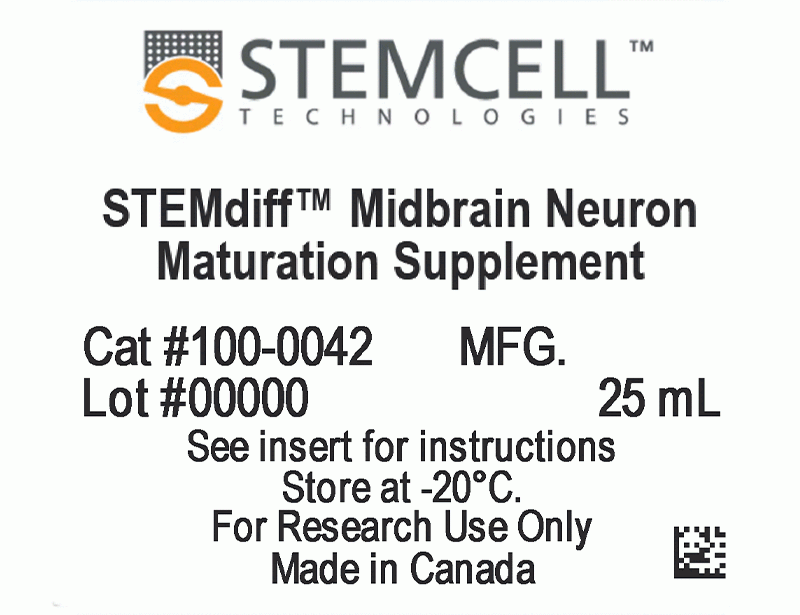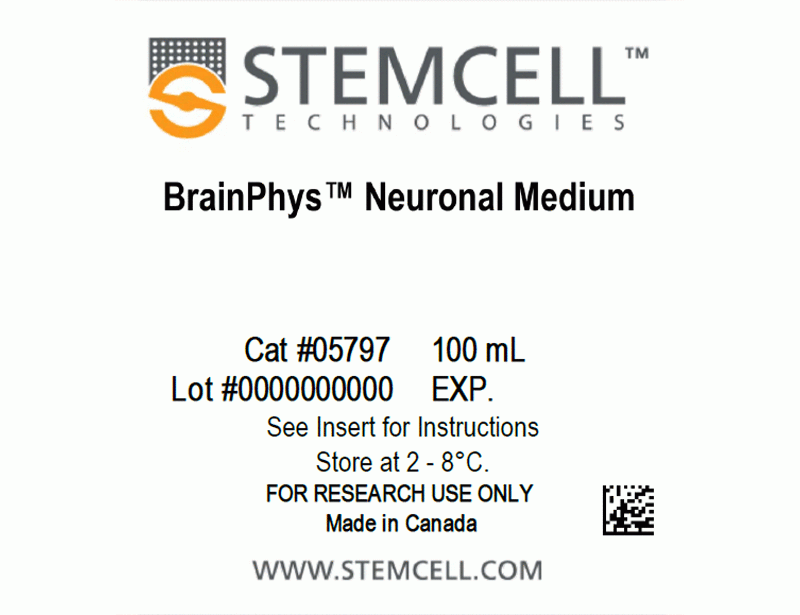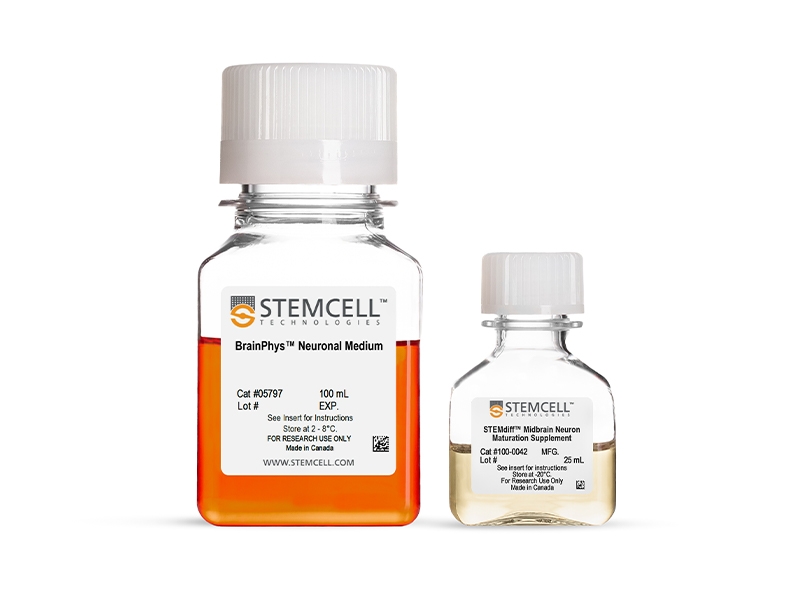STEMdiff™ Midbrain Neuron Maturation Kit
• Supports highly efficient generation of midbrain-like functional neurons from hPSC-derived neuronal precursors
• Produces a population of TH-positive neurons (>15%) that can be maintained long term in culture
• Optimized for maturation of midbrain neuronal precursors generated using the STEMdiff™ Midbrain Neuron Differentiation Kit
• Supports neuronal activity for physiologically relevant results
• Enables reproducible maturation of midbrain-type neuronal precursors derived from multiple human ES and iPS cell lines
- STEMdiff™ Midbrain Neuron Maturation Supplement, 25 mL
- BrainPhys™ Neuronal Medium, 100 mL
| Document Type | 产品名称 | Catalog # | Lot # | 语言 |
|---|---|---|---|---|
| Product Information Sheet | STEMdiff™ Midbrain Neuron Maturation Kit | 100-0041 | All | English |
| Safety Data Sheet 1 | STEMdiff™ Midbrain Neuron Maturation Kit | 100-0041 | All | English |
| Safety Data Sheet 2 | STEMdiff™ Midbrain Neuron Maturation Kit | 100-0041 | All | English |
Data

Figure 1. Schematic for the Embryoid Body Protocol
Midbrain-type neurons, including dopaminergic neurons, can be generated from neural precursors after 12 days in STEMdiff™ Midbrain Neuron Differentiation Medium. For differentiation of precursors from embryonic and induced pluripotent stem cells, see the PIS.

Figure 2. Schematic for the Monolayer Protocol
Midbrain-type neurons, including dopaminergic neurons, can be generated from neural precursors after 6 days in STEMdiff™ Midbrain Neuron Differentiation Medium. For differentiation of precursors from embryonic and induced pluripotent stem cells, see the PIS.
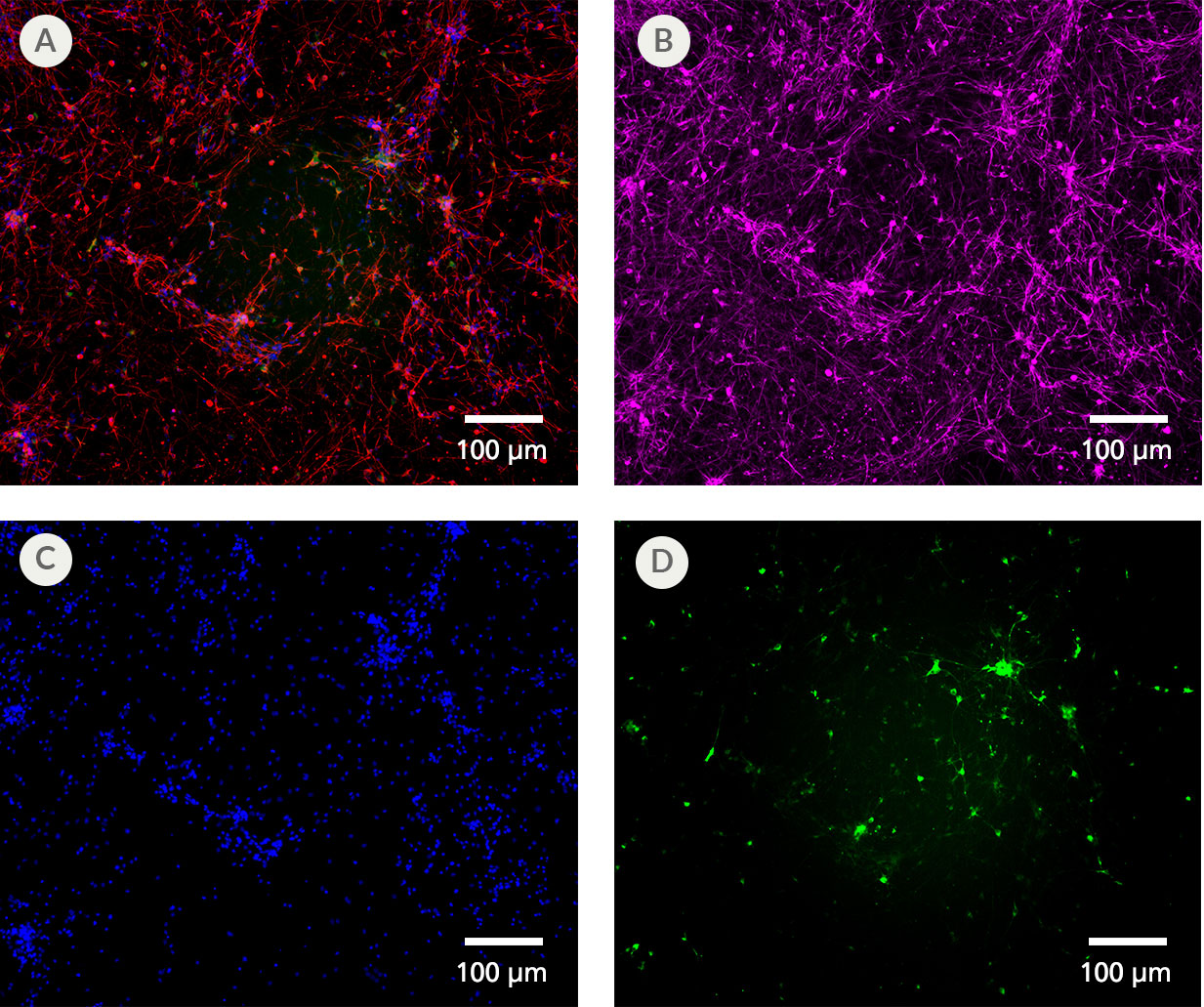
Figure 3. Midbrain-Type Neurons Are Generated After Culture in STEMdiff™ Midbrain Neuron Differentiation and Maturation Kits
NPCs generated from H1 hPSCs in mTeSR™1 using the STEMdiff™ SMADi Neural Induction Kit embryoid body (EB) protocol were differentiated and matured to midbrain-type neurons using the STEMdiff™ Midbrain Neuron Differentiation and Maturation Kits. (A) Midbrain-type neurons were formed after hPSC-derived NPCs were cultured with the STEMdiff™ Midbrain Neuron Differentiation Kit for 12 days and STEMdiff™ Midbrain Neuron Maturation Kit for 14 days. The resulting cultures contain a population of (B) class III β-tubulin-positive neurons (magenta), with (D) more than 15% Tyrosine Hydroxylase-positive cells (green). (C) Nuclei are labeled with DAPI (blue).
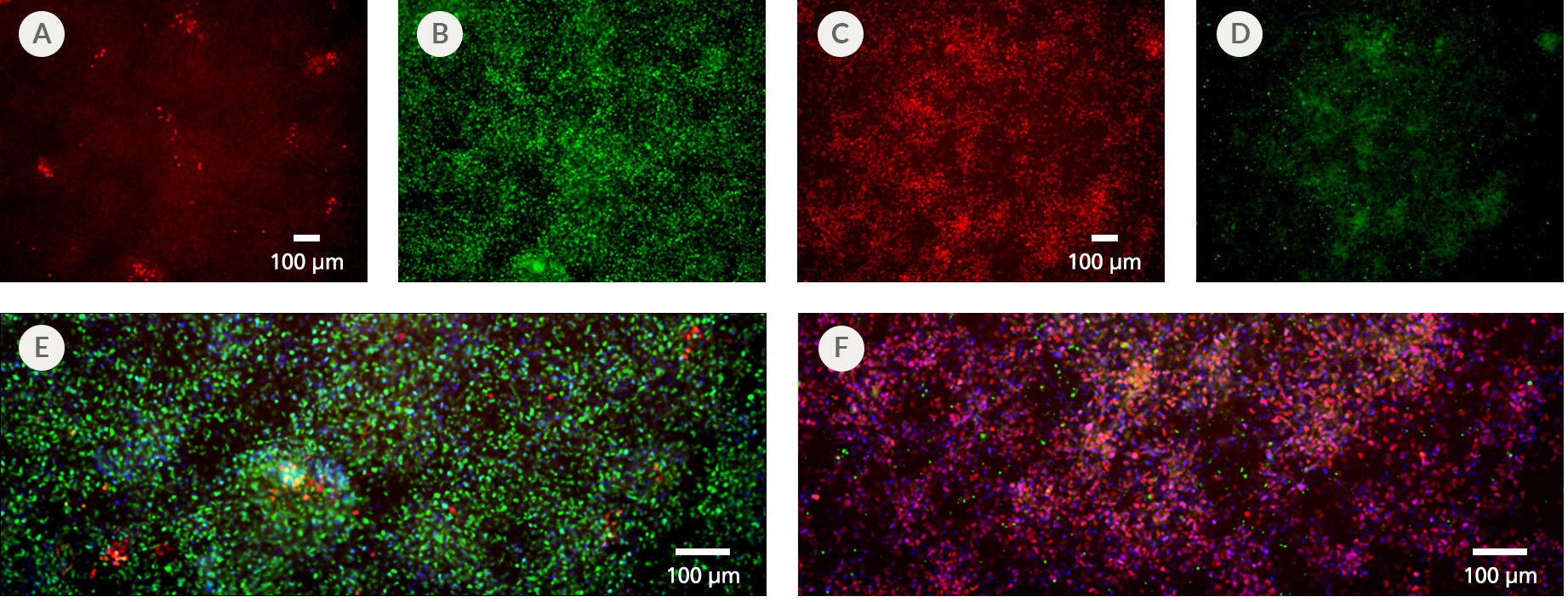
Figure 4. Midbrain-Type Neural Precursor Cells Express Characteristic Markers After Culture in STEMdiff™ Midbrain Neuron Differentiation Kit
NPCs generated from STiPS-F016 hPSCs in mTeSR™1 using the STEMdiff™ SMADi Neural Induction Kit monolayer protocol were differentiated to midbrain-type neural precursors using STEMdiff™ Midbrain Neuron Differentiation Kit for 7 days. (A) Midbrain-type neural precursor cell cultures contain a population of (A) FOXA2-expressing cells (red) and (B) NKX2.1-expressing cells (green). Merge image in (E) showing the bottom half of the same FOV includes DAPI-labeled nuclei (blue) and shows non-overlapping marker expression. The resulting neural precursor cultures also express (C) OTX2 (red) and are negative for (D) central nervous system NPC marker PAX6 (green). Merge image in (F) showing the bottom half of the same FOV includes nuclei that are labeled with DAPI (blue).
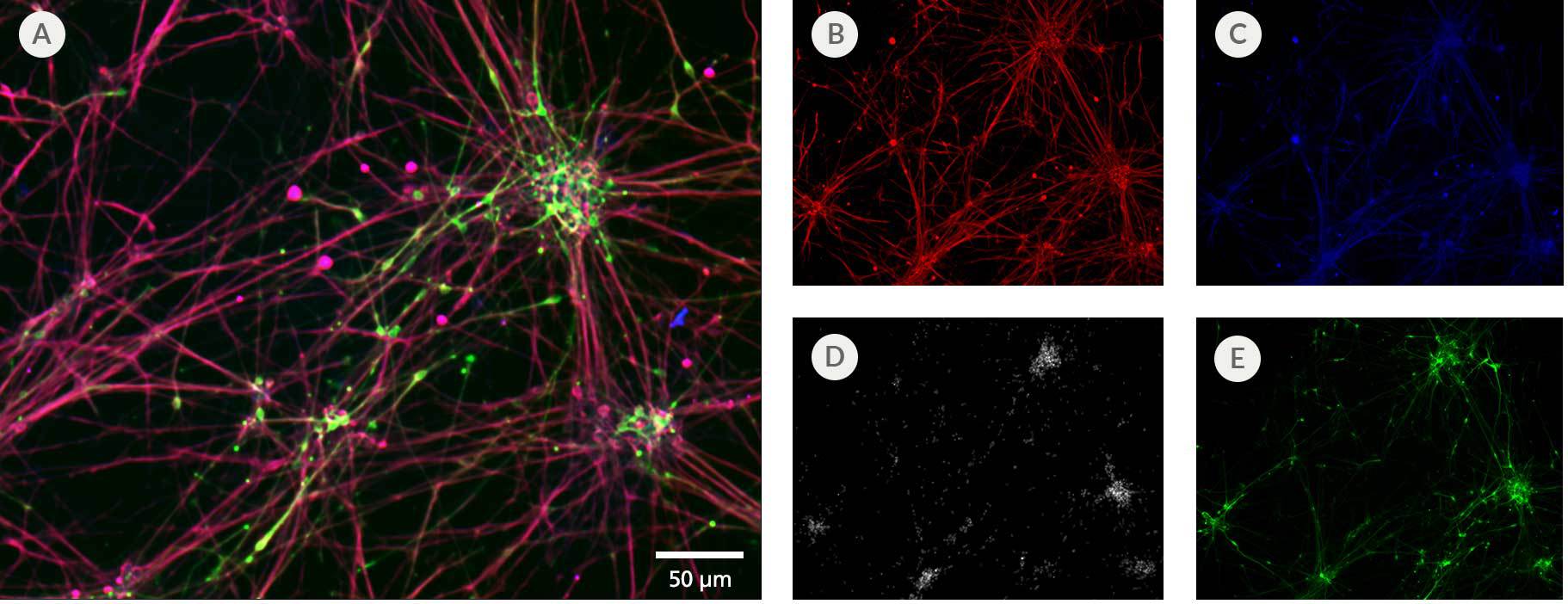
Figure 5. Midbrain-Type Neurons Express Dopamine Transporters (DAT) After Differentiation and Maturation in STEMdiff™ Midbrain Neuron Kits
NPCs generated from H9 hPSCs in mTeSR™1 using the STEMdiff™ SMADi Neural Induction Kit monolayer protocol were differentiated and matured to midbrain-type neurons using the STEMdiff™ Midbrain Neuron Differentiation and Maturation Kits. (A) Midbrain-type neurons were formed after NPCs were cultured with the STEMdiff™ Midbrain Neuron Differentiation Kit for 12 days and STEMdiff™ Midbrain Neuron Maturation Kit for 14 days. The resulting cultures contain a population of (B) class III β-tubulin-positive neurons (magenta), which (C) express DAT in blue, and (E) Tyrosine Hydroxylase-positive cells (green). (D) Nuclei are labeled with DAPI (white).

